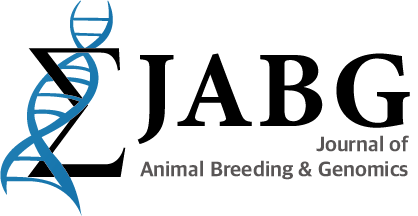Abstract
This study was conducted to identify individuals suspected of natural crosses without KPN gene information and to analyze the relationship with economic traits. Allelic of the analyzed MS markers was compared with KPN information, and individuals with no confirmed parental status were estimated as natural crosses. The results were as follows; 4.37% of the individuals were estimated as natural mating, and the proportion of the natural mating individuals was higher under grade 2 than others grade. In the analysis of economic traits, it was found that natural crosses individuals had a longer breeding period (1.45 months), the carcass weight was lower (9kg), the Longissimus dorsi Muscle Area was smaller (3.85㎠), and the Marbling Score was lower (0.8) than artificial insemination individuals. It also showed a significantly lower value in the meat quality grade, and the economic loss of the natural mating individuals was larger. On the basis of the results, it was shown that, when removing the natural mating individuals, the gain of the production cost by shortening the breeding period was 212 thousand won and the gain of the sale price by increasing of the meat quality grade was 778 thousand won. In other words, it can take a total of 990 thousand won economic gain for each.
Figures & Tables



